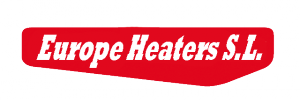Resistance alloys
- Nickel-Chromium Alloys
- Iron-Chromium-Aluminium Alloys
- Copper-Nickel Alloys
- Nickel Alloys
- Iron-Nickel Alloys
Those are alloys of chemical composition Fe + Cr + Fe with some additional elements and rare earth so as Yttrium, zirconium, Titan, Cerium, and Lanthanum which confer them:
An excellent resistance to oxidation under heat
A limitation of intergranular oxidation
A good life time
Their metallurgical structure confers them, nevertheless, a cold plasticity lower than austenitic alloys (NiCr).
Advantages of FeCrAl compared with NiCr:
A higher resistivity (up to 1,44 ohm mm² / m)
A temperature of use higher in the air (1300 ° C against 1200 ° C)
A higher charge rate
A good resistance to sulphurous and carbonaceous atmospheres
A lower density which means: with an equal weight of material a more important number of elements (a cheaper unit price)
However:
A less important plasticity and a more difficult shaping
Mechanical behaviour limited and embrittlement after first heat
Possibility of corrosion more important because of the iron
Phenomenon of "path" more important (striction and elongation of the resistances)
Constraints:
Pre-oxidation often necessary
Minimal content in alumina of the supports: 60% without iron oxide
In furnaces under atmosphere, initial coat of protective oxide to regenerate periodically.


